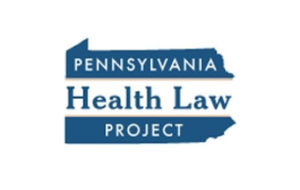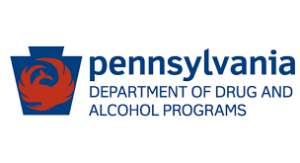PA Medicaid Enrollment Could Plunge
Hundreds of thousands of Pennsylvanians could lose their Medicaid coverage in the year after the COVID-19 public health emergency officially ends.
 The state’s Medicaid rolls have grown by approximately 600,000 during the pandemic, and under the terms Congress set for states to receive additional federal funding to support their Medicaid programs, the state was prohibited from re-evaluating the eligibility of those receiving Medicaid and removing them from the state’s Medicaid rolls if they were found ineligible. Once the pandemic officially ends, however, states will once again be able to review the eligibility of their Medicaid participants. In Pennsylvania today, that amounts to approximately 3.4 million people.
The state’s Medicaid rolls have grown by approximately 600,000 during the pandemic, and under the terms Congress set for states to receive additional federal funding to support their Medicaid programs, the state was prohibited from re-evaluating the eligibility of those receiving Medicaid and removing them from the state’s Medicaid rolls if they were found ineligible. Once the pandemic officially ends, however, states will once again be able to review the eligibility of their Medicaid participants. In Pennsylvania today, that amounts to approximately 3.4 million people.
The loss of Medicaid eligibility would be a major blow to those currently receiving care through the program and the providers that are being paid for the care they deliver to qualified recipients. This could pose a special challenge for Pennsylvania’s safety-net hospitals, which care for disproportionately large numbers of Medicaid patients.
Learn more about the coming challenge of reviewing Medicaid eligibility in the WESA-FM report “As COVID-19 subsides, thousands of Pennsylvanians could lose Medicaid coverage.”
 Governor Wolf announced that Pennsylvania’s state-based health insurance marketplace, known as Pennie, has added a new “qualifying life event” to enable low-income Pennsylvanians to enroll in health insurance throughout the year. Under this new qualifying life event, Pennsylvanians with an annual household income equal to or below 150 percent of the federal poverty level will be permitted to shop and enroll in health insurance through Pennie, with financial assistance available to those who qualify. Until now, this opportunity was only available for those not already receiving coverage through Pennie. Beginning in June, existing Pennie customers whose income is lower than or equal to the 150 percent federal poverty level can update their application and change their plan using this qualifying life event. Learn more from
Governor Wolf announced that Pennsylvania’s state-based health insurance marketplace, known as Pennie, has added a new “qualifying life event” to enable low-income Pennsylvanians to enroll in health insurance throughout the year. Under this new qualifying life event, Pennsylvanians with an annual household income equal to or below 150 percent of the federal poverty level will be permitted to shop and enroll in health insurance through Pennie, with financial assistance available to those who qualify. Until now, this opportunity was only available for those not already receiving coverage through Pennie. Beginning in June, existing Pennie customers whose income is lower than or equal to the 150 percent federal poverty level can update their application and change their plan using this qualifying life event. Learn more from  Centers for Medicare & Medicaid Services
Centers for Medicare & Medicaid Services
 Stakeholder Events
Stakeholder Events Included in this month’s issue are articles about:
Included in this month’s issue are articles about: General Assembly
General Assembly Department of Drug and Alcohol Programs
Department of Drug and Alcohol Programs The state House Appropriations Committee began its FY 2023 budget hearings this week. The Senate Appropriations Committee will begin hearings next week. Hearings will conclude on March 17. A complete schedule of the hearings can be found
The state House Appropriations Committee began its FY 2023 budget hearings this week. The Senate Appropriations Committee will begin hearings next week. Hearings will conclude on March 17. A complete schedule of the hearings can be found  COVID-19: By the Numbers
COVID-19: By the Numbers Pennsylvania Higher Education Assistance Agency (PHEAA)
Pennsylvania Higher Education Assistance Agency (PHEAA) Proposed State FY 2023 Budget
Proposed State FY 2023 Budget General Assembly
General Assembly Department of Health
Department of Health Governor Wolf
Governor Wolf Included in this month’s issue are articles about:
Included in this month’s issue are articles about: General Assembly
General Assembly